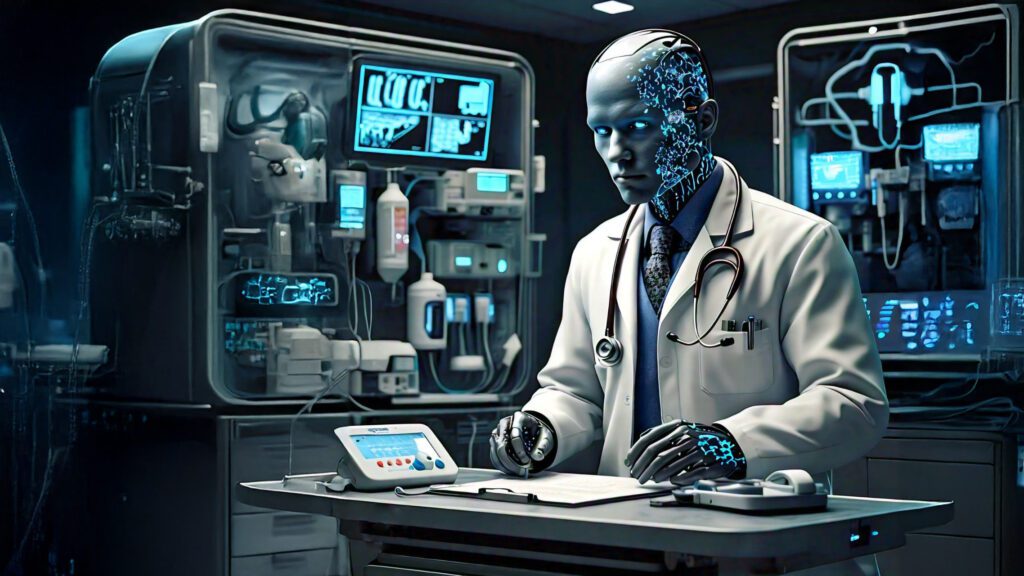
Artificial intelligence (AI) is reshaping industries around the world, and healthcare is at the forefront of this transformation. With its unrivaled ability to process huge datasets, identify patterns, and make accurate predictions, AI is set to revolutionize the way we diagnose diseases, develop new medicines, and deliver personalized treatment plans. Here’s a closer look at how AI is ushering in a new era in healthcare.
AI-powered diagnosis: Increasing accuracy and speed
A key area where AI shows great potential in healthcare is in the field of diagnosis. AI algorithms are able to analyze medical images such as X-rays, MRIs, and CT scans with remarkable accuracy, often surpassing traditional human assessments. This ability allows for earlier detection of diseases, leading to more accurate diagnoses and better patient outcomes.

For example, AI systems can detect subtle signs of breast cancer in mammograms that may be missed by human radiologists, enabling earlier diagnosis and treatment. Similarly, AI can analyze electrocardiograms (ECGs) to identify heart irregularities, such as arrhythmias or potential heart attacks, faster and with greater accuracy.
Accelerated drug discovery: Reducing time and cost
AI is also transforming the process of drug discovery by significantly speeding it up. Traditionally, the development of new drugs is a lengthy, costly endeavor that involves extensive trial and error. AI simplifies this process by analyzing vast datasets of chemical compounds and biological information, identifying potential drug candidates more efficiently than ever before.

Machine learning algorithms can predict the properties of molecules, including their efficacy and toxicity, without the need for elaborate laboratory experiments. This reduces the time and cost of bringing new treatments to market, potentially saving millions of dollars and years of research.
Personalized treatment: Tailoring care to individual needs
AI is paving the way for personalized medicine, a healthcare approach that customizes treatment plans based on the unique characteristics of each patient. By analyzing a combination of genetic information, medical history, and other relevant data, AI algorithms help doctors design more effective, personalized treatment strategies.

For example, AI can predict how a patient will respond to a specific medication based on their genetic profile. This ensures that doctors prescribe the most effective treatment, reducing the risk of adverse reactions and improving overall patient care. AI-driven personalized medicine can lead to better outcomes and lower healthcare costs by reducing the trial-and-error approach often associated with treatment plans.
Challenges and Future Prospects: Overcoming Ethical and Practical Barriers
While the benefits of AI in healthcare are enormous, several challenges need to be addressed. Ethical concerns, such as patient privacy and the risk of biased AI algorithms, must be carefully managed. Additionally, more research and development is necessary to ensure that AI systems are reliable, accurate, and safe for widespread clinical use.
Despite these obstacles, the future of AI in healthcare is bright. Continued advances in AI technology will likely lead to even more innovative applications in diagnostics, drug discovery, and personalized medicine. By harnessing the power of AI, the healthcare industry can improve patient care, reduce costs, and ultimately enhance the quality of life for people around the world.
Conclusion
AI is more than just a tool; it’s a game-changer in healthcare. From early diagnosis and faster drug discovery to personalized treatment, AI has the potential to solve some of the industry’s most critical challenges. As the technology continues to evolve, adopting AI can make future healthcare more efficient, affordable, and tailored to each patient’s needs.
